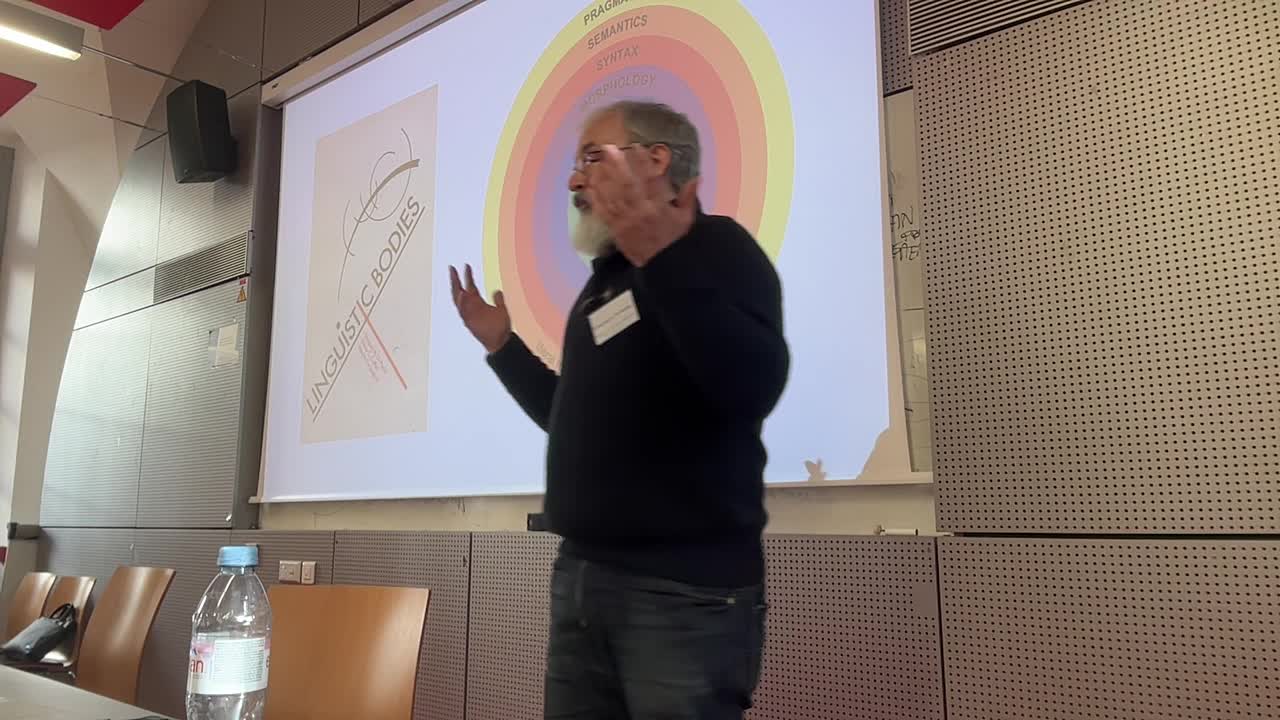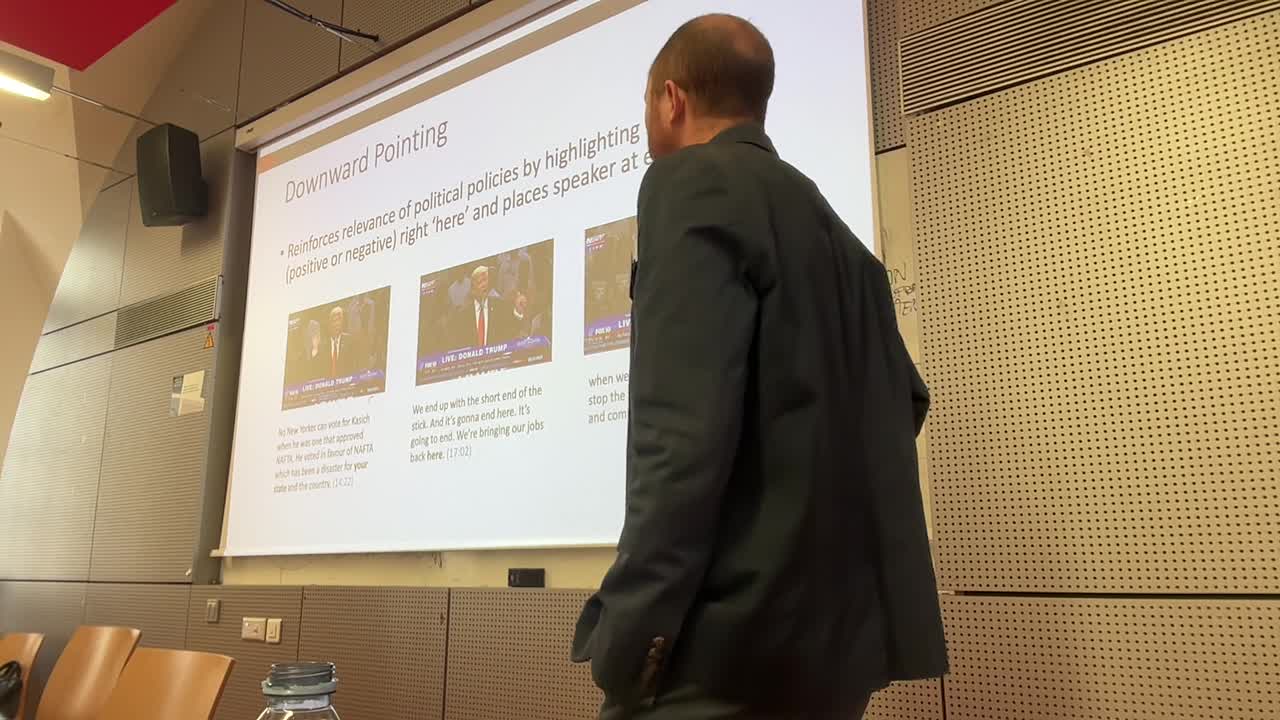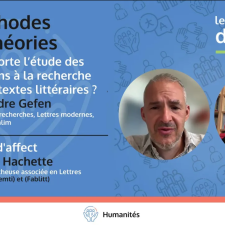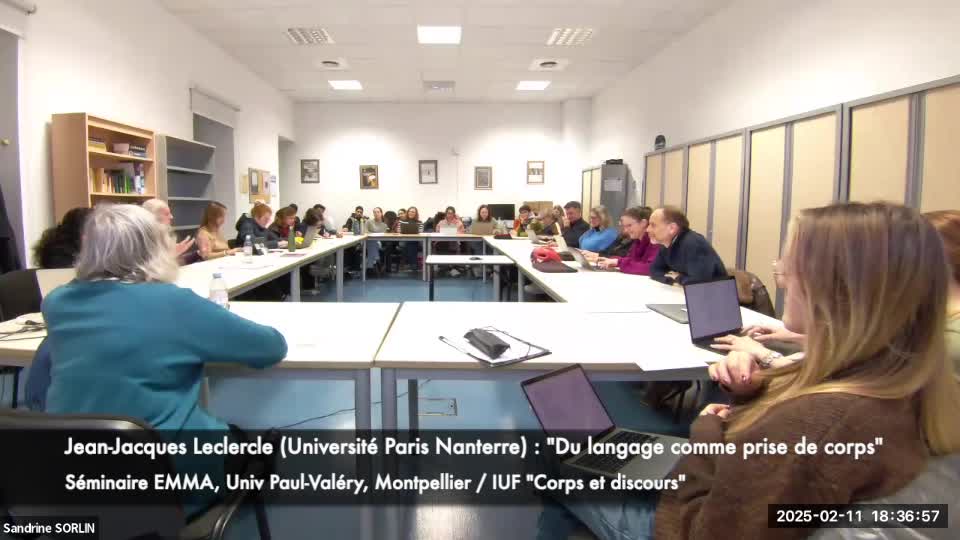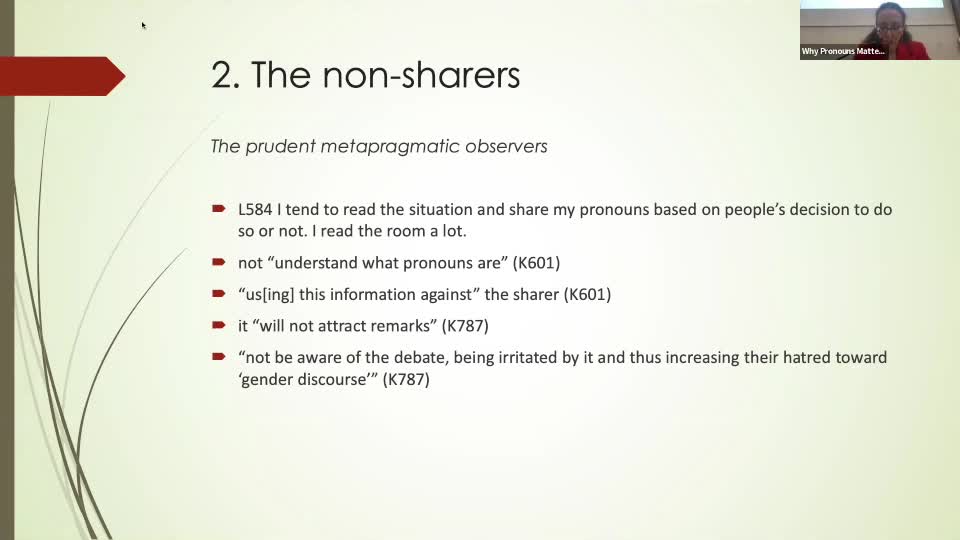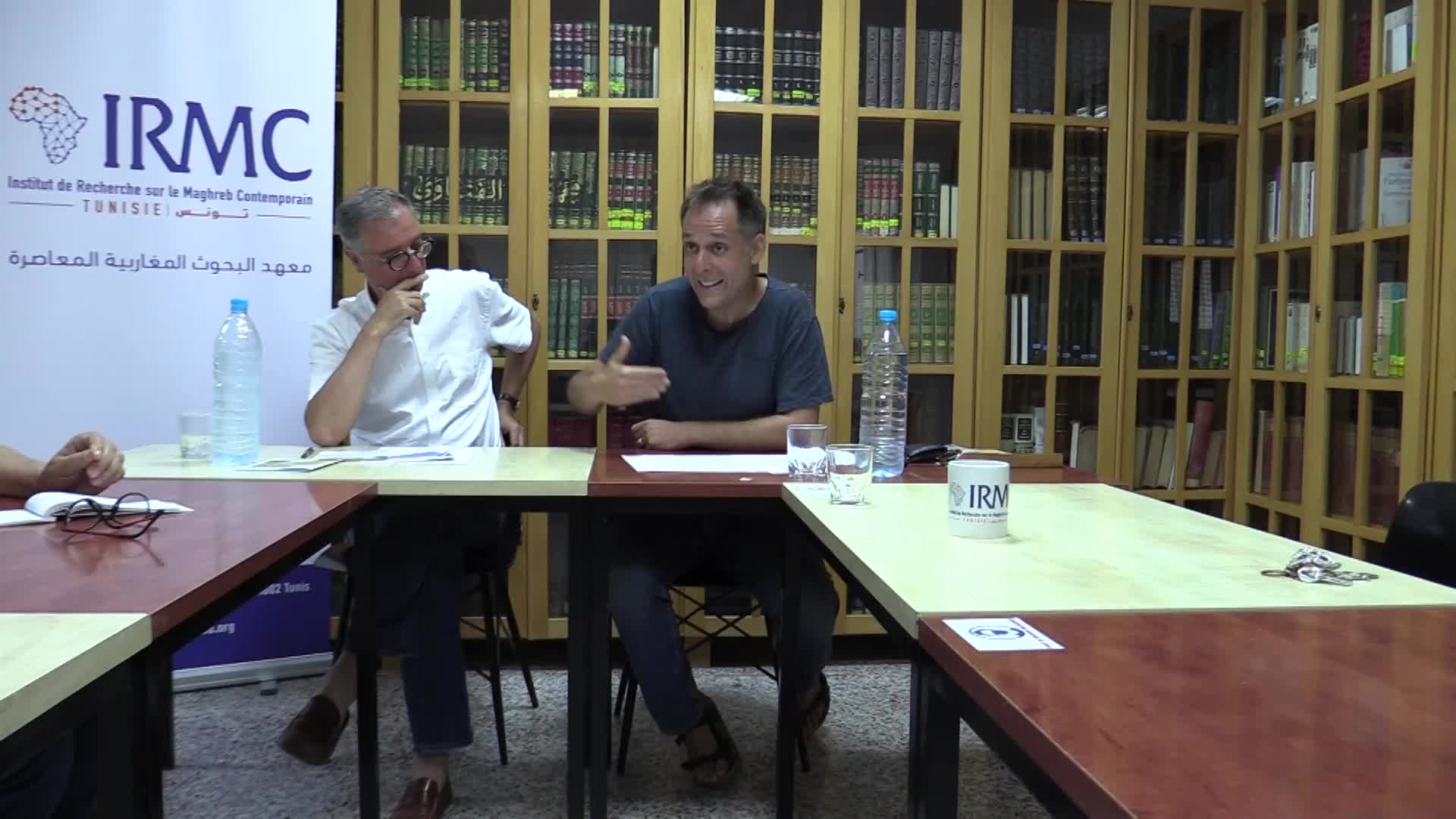Notice
• Laura Alba-Juez (Universidad Nacional de Educación a Distancia, Madrid, Spain) “I’ll never call him dad again”: Emotional inferences and embodiment in the Giselle Pélicot sexual assault case in France".
- document 1 document 2 document 3
- niveau 1 niveau 2 niveau 3
Descriptif
This talk presents a sociopragmatic analysis of the inferences and emotional embodiment that emerge in an interview conducted by Oprah Winfrey with Caroline Darian, daughter of Giselle Pélicot, a survivor of one of the most shocking sexual assault cases in recent history. The case not only deeply affected French society but also resonated worldwide. I examine the inferential processes and frameworks expressed by both interlocutors and invoked in the audience, as well as the invoking mechanisms (Alba-Juez 2025) that shape these responses. The analysis proposes a multimodal, interaction-oriented sociopragmatic approach that foregrounds three key dimensions: evaluation, relationships, and morality (Alba-Juez & Haugh 2025).
As Elder (2024: 1) notes, speakers rarely convey messages entirely explicitly, since, as Levinson (2000: 29) observes, “inference is cheap, articulation is expensive.” This principle is especially evident in this emotionally charged case, where direct reference to the brutality of the events is often avoided for affective reasons. To classify these invoked, indirect meanings, I draw on Alba-Juez’s (2025) taxonomy of invoking mechanisms, Bertucelli Papi’s (2000) categories of the unsaid, Martin & White’s (2005) distinction between inscribed and invoked Attitude, and Don’s (2014) invocation spectrum.
The study is guided by three main research questions: (1) What inferential frameworks are employed in the narration of Pélicot’s case during the interview? (2) What inferences are triggered by the interview’s words, images, gestures, and body language? (3) What emotions are invoked by interviewer and interviewee, and how are these emotions embodied and instilled in the audience? The central hypothesis is that a sociopragmatic perspective can shed light on how evaluation, relationships, and morality are discursively enacted and embodied in this conversation.
The findings show that inferences—particularly subplicit inferences—are crucial to the decoding of emotional meaning. Despite the horrific nature of the events, the inferential substrate not only arouses negative emotions but also fosters empathy and alignment with the victims, both on the part of the interviewer and the audience. Furthermore, the act of sharing traumatic experiences and emotions paradoxically contributes to a transformative process for the victims, enabling positive and empowering decision-making. Ultimately, the discursive dynamics observed here highlight a powerful shift of shame from the victims to the perpetrator.
Intervention / Responsable scientifique
Dans la même collection
-
• Ezequiel A. Di Paolo (Ikerbasque, the Basque Foundation for Science, Spain) “The historicity of l…
Di PaoloEzequiel A.In this talk, I overview the broad assumptions and central ideas of the enactive approach to language, sketch the dialectical methodology that enables us to move from broad forms of participatory
-
• Christopher Hart (Lancaster University, UK) “The Embodied Performance of Right-Wing Populism”
HartChristopherIn this talk, I draw on frameworks for the study of co-speech gesture developed in cognitive linguistics (e.g. Cienki 2022) to discuss the forms and functions of pointing and shrugging gestures in the
Sur le même thème
-
• Ezequiel A. Di Paolo (Ikerbasque, the Basque Foundation for Science, Spain) “The historicity of l…
Di PaoloEzequiel A.In this talk, I overview the broad assumptions and central ideas of the enactive approach to language, sketch the dialectical methodology that enables us to move from broad forms of participatory
-
• Christopher Hart (Lancaster University, UK) “The Embodied Performance of Right-Wing Populism”
HartChristopherIn this talk, I draw on frameworks for the study of co-speech gesture developed in cognitive linguistics (e.g. Cienki 2022) to discuss the forms and functions of pointing and shrugging gestures in the
-
-
Les Rendez-vous du Savoir des Humanités - Méthodes et théories #1 et #2
HachettePaulineGefenAlexandreSylvosFrançoiseLes Rendez-vous du Savoir des Humanités - Méthodes et théories #1 et #2
-
"Du langage comme prise de corps", Jean-Jacques Lecercle, Université Paris Nanterre
LecercleJean-JacquesOn distinguera cinq corps et cinq prises de corps par le langage. On en tirera des conséquences pour une conception du langage non comme simple instrument de communication mais comme milieu de
-
“What’s in a pronoun and how does it matter?: From the perspective of pragmatics”, Sandrine Sorlin,…
SorlinSandrineIn this talk, I wish to give a quick overview of the quite recent ‘pronoun sharing’ trend from a linguistic and pragmatic perspective, going through the new collocations and semantic shifts of the
-
Conférence “Penser le populisme : une nouvelle approche socio- génétique”
BoissevainKatiaTarragoniFedericoMellitiImedL’IRMC invite le sociologue Federico Tarragoni (Université Paris-Diderot), qui présente une conférence intitulée « Penser le populisme : une nouvelle approche socio-génétique » coordonnée par Imed
-
Co-reference in (linguistic-)pictorial discourse
AltshulerDanielThis talk takes up the question of how one arrives at pragmatic interpretations of pictorial and mixed linguistic-pictorial discourses.
-
Existe-t-il un éco-populisme ?
Dans le contexte de la montée croissante des extrêmes droites, de plus en plus de travaux pointent l'émergence d'un "populisme environnemental" (green populism) ou d'un "éco-populisme" définis à
-
L'universalité de la norme démocratique à l'épreuve
Ben AchourYadhWahnichSophieAvonDominiqueBessisSophieCompagnonAntoineFrouvilleOlivier deMohsen-FinanKhadijaHachemaouiMohammedGendreau-MassalouxMichèleLahlouSaadiRousseauDominiqueSaadaKathyTroperMichelYaredHyamZuberValentinePour défendre la démocratie et la faire échapper au relativisme dans lequel veulent l’emprisonner tous ses adversaires, il est impératif de l’examiner en tant que Norme et lui trouver un fondement
-
Conférence de Jean-Yves Camus Populisme(s) et xénophobie(s) en Europe
Directeur de l'Observatoire des radicalités politiques de la Fondation Jean Jaurès, chercheur rattaché à l'IRIS (Institut des Relations Internationales et Stratégiques), senior Fellow au Centre for
-
Comprendre le populisme - intervention de Yves Surel
SurelYvesLiogierRaphaëlIntervention de Yves Surel


